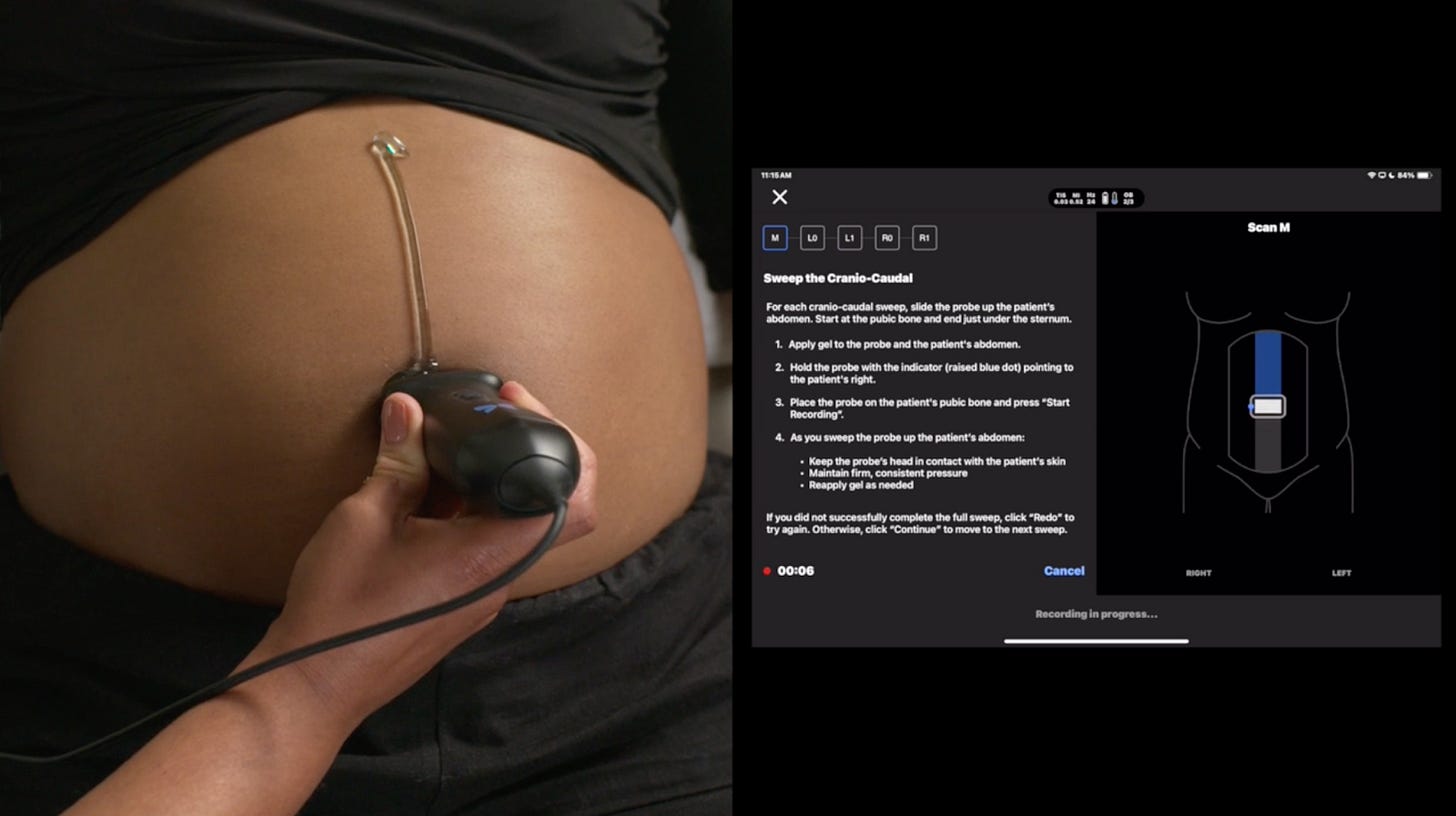Butterfly Network’s AI tool brings faster, easier pregnancy scans to Sub-Saharan Africa
AI-powered gestational age calculator is a first-of-its-kind innovation for low-resource settings
Butterfly Network has launched an AI tool that helps healthcare workers in Malawi and Uganda estimate how far along a pregnancy is, without needing ultrasound training. The “blind-sweep” Gestational Age calculator is built into the company’s app and aims to make pregnancy care more accessible in low-resource settings.
The tool, developed by the University of North Carolina with support from the Bill & Melinda Gates Foundation, uses AI to estimate gestational age from a short scan, or “blind sweep,” of the abdomen. It removes the need for image interpretation, meaning it can be used by midwives and other lower-skilled health workers.
According to Dr. Sachita Shah, Vice President of Global Health at Butterfly Network, the model was trained using data from African populations to ensure accuracy and relevance.
“Our AI-powered gestational age tool is an accurate, fast and simple way for lower-skilled healthcare workers in Sub-Saharan Africa to get expecting women the right care plans for the stage of their pregnancy,” she said.
The company said the technology could help improve early detection of pregnancy complications in regions where access to ultrasound remains extremely limited. An estimated 92% of maternal and neonatal deaths occur in low- and middle-income countries, with Sub-Saharan Africa carrying the heaviest burden.
The AI tool is not yet available in the United States but has been submitted for FDA review.
Expanding point-of-care ultrasound
The launch is part of Butterfly Network’s broader effort to expand point-of-care ultrasound (POCUS) across Sub-Saharan Africa. Since 2022, the company’s 1,000 Probe Partnership, funded by the Gates Foundation, has distributed more than 1,000 handheld iQ+ ultrasound probes and trained over 1,050 healthcare workers across 697 public health facilities in Kenya and South Africa.
As of July 2025, the program has supported 1.8 million scans, averaging about 83,000 per month. Partners include the Clinton Health Access Initiative (CHAI), the Global Ultrasound Institute, Kenyatta University, and the University of Pretoria.
Preliminary results suggest the rollout is already improving care. In Kenya, the number of women attending antenatal appointments before 24 weeks of pregnancy increased after Butterfly devices were introduced, and more than 90% of patients reported satisfaction with their care.
In South Africa, data from CHAI indicate reductions in stillbirths, neonatal deaths, and maternal mortality linked to midwife-led ultrasound services. Across 191 health facilities, 873 referrals were made for complications such as malpresentation, multiple pregnancies, and ectopic pregnancies. In 23 facilities, 71 women were safely retained for vaginal delivery at lower-level clinics following ultrasound assessments.
Early analysis from the Eastern Cape province also shows a 1.13% drop in stillbirths and a 20.6% decrease in maternal deaths in the year following ultrasound training.
Training and performance
Butterfly reports that the average scan time with its devices is 1.3 minutes, and 99.6% of trained providers have passed clinical assessments. Provider confidence in detecting key maternal conditions rose from 62% to 85% after training, according to company data.
Dr. Shah said the results demonstrate how simplified ultrasound and AI can help strengthen maternal care systems:
“We are committed to expanding obstetric POCUS adoption in low-resource settings and ultimately improving outcomes for mothers and babies.”
Product rollout and future outlook
Butterfly, listed on the NYSE, is best known for its Ultrasound-on-Chip technology, which allows whole-body imaging through a single handheld probe. Its goal, Butterfly says, is to ‘democratize medical imaging’ by combining hardware, software, and AI to make ultrasound more affordable and accessible worldwide.
While the company notes that other factors may also influence maternal health outcomes, early findings from Kenya and South Africa suggest that AI-assisted ultrasound could play a measurable role in reducing preventable deaths.
If results continue to improve, the technology could become a model for expanding safe, low-cost ultrasound access in other regions where specialist care remains limited.



